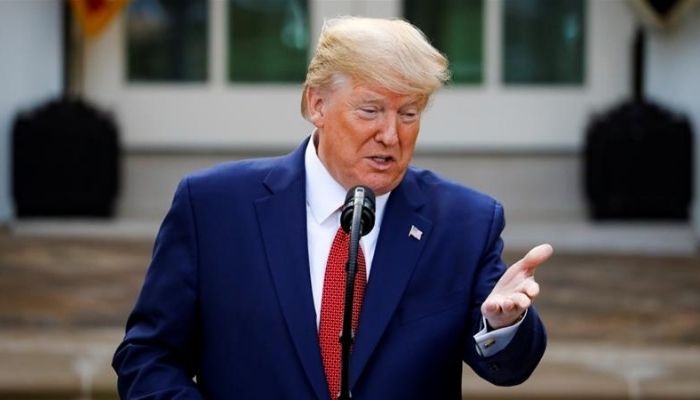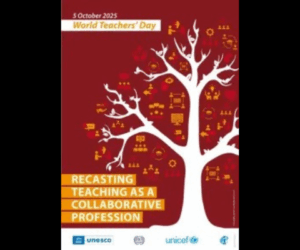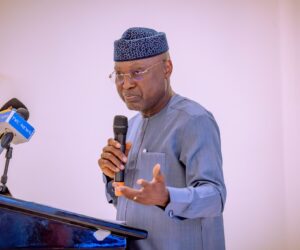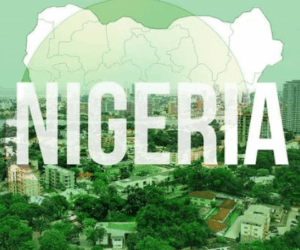At a recent press conference in the Oval Office, the President of the United States of America, Donald Trump said the following, referring to the children of Baltimore, a city with a predominantly black population, and the capital city of the state of Maryland.
‘…They’re hard core …They’re not going to be good in ten years, in twenty years, they’re going to be criminals…They were born to be criminals….’
It was an outlandish statement for the leader of any nation to say about his own nationals, and it would have excited howls of citizens’ outrage in any other nation on earth. It put the children beyond the pale of redemption, depicting them as a cancer, the only cure for which was isolation and extermination.
“There is acknowledged racial stereotyping and bias within the law enforcement and judicial systems, with greater likelihood for black young men to be stopped and searched, and to be arrested on suspicion of crime. There is also a tendency for them to receive harsher custodial sentences than other races for similar offences.”
It is important to state the context in which the statement was made. For several months before the speech, the President has been speaking of his intention to send the National Guard and federal security resources to some cities in the USA where, he claimed, there were unacceptably high rates of murder and other crimes. He mentioned Washington, and Chicago and Baltimore, among others.
Trump’s plan to deploy National Guards was seen by many of his opponents and much of civil society as an executive overreach. Technically, the President of the USA had overriding authority over the National Guard, and could deploy them anywhere, though their purpose had generally been for disaster events such as floods, earthquakes and major riots.
Not one to be deterred by the opposition, Donald Trump went on to deploy the National Guard in Washington.
Baltimore, capital of the state of Maryland was next in his sights.
Maryland Governor Wes Moore’s response to the Trump diatribe was caustic and personal, addressed to the children of Baltimore.
‘I want to speak directly to our children…Do not listen to what Donald Trump is saying…I say this – I respect the office, but I would never honour ignorance…If I had listened …when I was coming up… to the haters …and the dog whistlers…I would never have been the 63rd Governor of Maryland, and the only black Governor in the United States of America… ’.
Wes Moore is a very accomplished man. 46 years old, married, with two children, he became Governor of Maryland in January 2023. He was a Rhodes Scholar who studied for a BA at Johns Hopkins University and obtained an MLitt at Oxford University. And he is a decorated military veteran.
Some vocal sections of the black community – never great fans of Donald Trump, see nothing but naked racism in Trump’s words. A prominent Pastor, in a viral video, directed these words at the White House –
‘…Because you are a criminal…You don’t want to look in the mirror…It is called ‘Projection’…’
Beyond the rhetoric, and the emotion, it is important to ask – What is the relationship, if any, between black youths and crime?
Based on FBI 2024 data on violent crimes of murder, rape, robbery and aggravated assault per 100,000 people, the cities with the highest crime rates in USA are, in descending order – Memphis, Detroit, Baltimore, Kansas City, Milwaukee, Albuquerque, Houston, Nashville, Denver, and Washington DC. A majority, but not all, of the cities are Democratic ‘Blue’, with significant African American populations, and black-led.
For Murder, 2019 FBI statistics give per-capita offending rates for African Americans as approximately eight times higher than the figure for whites. 91% of victims of homicide carried out by blacks are black. Black youths make up 16% of the youth population, but account for more than half of all arrests for violent crime, including murder and robbery.
There is acknowledged racial stereotyping and bias within the law enforcement and judicial systems, with greater likelihood for black young men to be stopped and searched, and to be arrested on suspicion of crime. There is also a tendency for them to receive harsher custodial sentences than other races for similar offences.
Still, some neighbourhoods are recognised as hot crime areas, redolent with poverty, poor social services, drug dealing, gang violence and poor educational institutions. Commonly they have a high rate of single parent families.
Some lucky, or determined. children escape the limitations of these environments and go on to achieve success in the real world, but it is easier for some others to succumb to a life of crime, drugs, repeated jail and early death.
Should the reaction of black elites to Donald Trump’s abhorrent racist statements be just one of justified chagrin? Or could the offensive challenge be converted to opportunity to take a fresh look inwards and hold some tough and painful conversation?
Most of the victims of black crime are black. What is the right thing for the black community to do?
Does African American society need to be rebuilt from the ground up? Does the family unit need to be revived, and revitalised? Do the Church, and the Mosque, have a role to play? Do the ‘hoods’ need to be cleaned up? Do the schools need to be improved, and better teachers recruited? Should elite black money, in addition to government money, be invested in rebuilding the slums, reviving Commerce, and giving the youths a life? Should the people who ‘make it’ from the ‘hood’ – in Music, in Sports, in Business, and Academics, continue to ‘japa’ to white neighbourhoods, without looking back?
Or is all this just hate and racial stereotyping, deserving nothing but contemptuous dismissal?
Incidentally, there is no scientific evidence that Trump’s deployment of the National Guard will permanently solve the crime problem in the cities.
In a bizarre recent development, some notorious black gang members in Chicago raised their voices on social media, opposing the planned deployment of National Guard to the Windy City, and making threatening noises. Were they really speaking for the best interests of the people?
There are many questions for the African American elite of the USA to ponder on.









